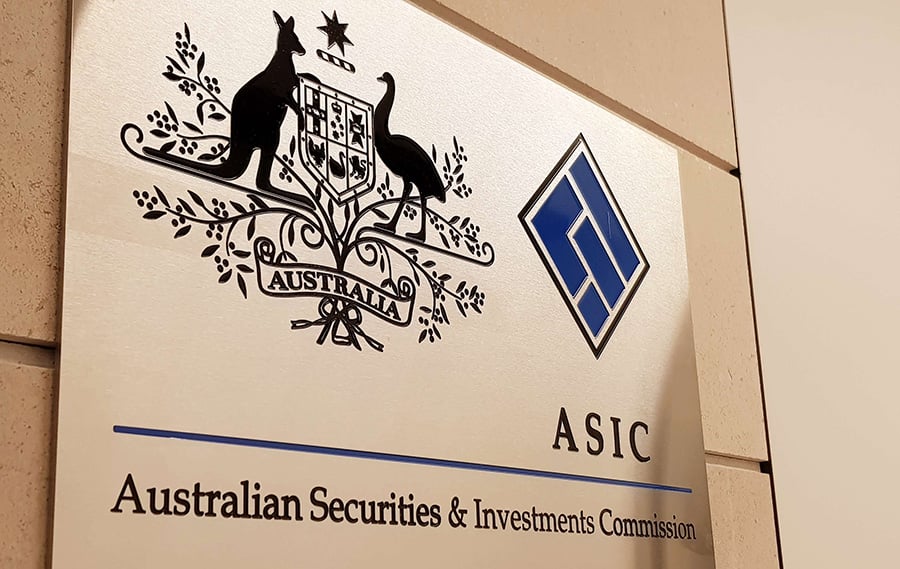How the Climate-Related Financial Disclosures Bill Can Impact Your Business: Insights for Climatics Users
The introduction of the Climate-Related Financial Disclosures Bill is a significant development...
Current regulation, guidance, and impending mandatory climate risk disclosures are placing greater demands on directors to comply with their duty of care.
In late 2022, the Australian Department of the Treasury (Treasury) released a Consultation Paper, proposing the introduction of mandatory climate-related financial risk disclosure in Australia. The Consultation Paper outlines the potential benefits of mandatory disclosure, including increased transparency for investors, improved decision-making, and reduced financial risks.
The Consultation Paper (now closed) comes amid growing pressure from investors for Australia to introduce mandatory reporting requirements in line with similar developments occurring in New Zealand, the United Kingdom, and the European Union. These developments reflect the growing recognition of the financial risks posed by climate, and the need for companies to provide more information to investors about their exposure to these risks.
Mandatory climate risk disclosures could be introduced in Australia by FY24. This means that reporting entities need to start gathering data now to meet compliance requirements and the expectations of shareholders and the investment community.
If mandatory climate risk disclosures are introduced (likely), reporting entities will be required to disclose information about their exposure to climate change risk. Reporting entities that fail to comply with mandatory climate risk disclosure requirements could face penalties, such as fines or suspension from ASX.
Listed companies and reporting entities cannot use FY23 as a free pass to avoid their continuous disclosure obligations, especially when it comes to material issues such as climate risk. Current regulations and guidance are clear on the obligations of directors to disclose material information to the market as soon as it becomes known to them. This includes information about climate risk, which can have a significant impact on a company's business operations and finances.
The impact of climate change is no longer something that can be dismissed as an "act of God". It is a real and present danger that is already having a material impact on businesses around the world. Companies that fail to take climate risk seriously are putting themselves at risk of financial losses and reputational damage.
Directors who fail to comply with their continuous disclosure obligations can face significant penalties, including fines and jail time. They can also be held personally liable for any losses that their shareholders suffer as a result of their non-compliance.
This is why it is important for directors to be aware of their continuous disclosure obligations and measure their risks now to ensure that they are complying with them. This includes having a robust system in place for identifying and assessing climate risk, and for disclosing material information to the market in a timely manner.
Companies that are proactive in managing climate risk will be better placed to protect themselves from the financial and reputational risks posed by ever present threat of physical and chronic climate risks.
Climate change risk is measurable and foreseeable. Analytical tools such as Climatics can be used to identify and quantify physical climate risks over the short, medium, and long term. This information can be used by directors to assess the potential impacts of climate change on the company's bottom line, and to develop mitigation measures.
Directors have a duty of care to the company and its shareholders. This includes taking steps to manage material risks, such as climate change. Directors who fail to comply with their duty of care may be held liable for any losses that the company suffers as a result.
The risk of climate change is real and present. Disasters do not wait until the end of the financial year or reporting season. Companies that fail to take climate change seriously are putting themselves at risk of financial losses and reputational damage.
Directors should take steps to identify and assess climate change risk. They should develop mitigating measures to reduce the company's exposure to these risks. This will help to protect the company's bottom line and its reputation.

Circling back to what we currently have on the books and when the rubber started to hit the road. I refer you to the Corporate governance update: climate change risk and disclosure | ASIC on 14 Oct 2021 and below an excerpt of comments by the ASIC Commissioner Sean Hughes regarding Climate Change Risk Governance:
“Our surveillance activity will focus on monitoring the continued evolution of TCFD reporting standards in our market and of course statutory disclosure requirements such as those that apply to operating and financial reviews and disclosure documents.
We intend to continue to engage formally on climate change disclosure-related issues through established mechanisms including:

Also, at the close of 2021, the Australian Prudential Regulation Authority (APRA) and the Australian Securities and Investments Commission (ASIC) released new guidance on managing the financial risks of climate change. APRA released its final prudential practice guide on climate change financial risks, following consultation on the draft Prudential Practice Guide CPG 229 Climate Change Financial Risks (CPG 229).
ASIC has published updates to clarify the application of its existing regulatory guidance to the disclosure of climate change related risks and opportunities - Final Prudential Practice Guide CPG 229 Climate Change Financial Risks (apra.gov.au). CPG 229 is aligned with the recommendations from the Financial Stability Board’s Task Force on Climate-related Financial Disclosures (TCFD) and was developed in consultation with both domestic and international peer regulators - APRA finalises prudential guidance on managing the financial risks of climate change | APRA
Naturally this embodies ASIC's guidance on the disclosure as set out in Regulatory Guide 279: Climate Change Risk Disclosures (RG 279). RG 279 provides guidance to ASX-listed companies on how to comply with continuous disclosure obligations under the Corporations Act 2001 (Cth).
Prior to the ASIC Commissioner Cathy Armour completing her term mid-2022, she stated -
‘ASIC considers that the law requires an operating and financial review to include a discussion of climate risk when it is a material risk that could affect the company’s achievement of its financial performance.’
(Managing climate risk for directors | ASIC)
As mentioned at the beginning of this article, the consultation process: Climate-related financial disclosure | Treasury.gov.au (12 Dec 2022) has recently been completed.
In addition to current reporting frameworks, and impending regulations, the government has taken a pro-active approach in helping businesses access appropriate and trusted data to help in reporting. See Climate Resilient Enterprises - CSIRO and CSIRO readies business-focused climate risk platform (innovationaus.com).
The Commonwealth Scientific and Industrial Research Organisation (CSIRO) partnered with Microsoft, Telstra, Accenture and Australian SMEs to develop the “Climate Intelligence Platform” which will support a marketplace for the intelligence, with an initial focus on Australian financial services companies. The Climate Intelligence Platform provides data, analytics, and guidance to support users to better understand their climate risk. It can help Australian businesses understand, adapt and transition while considering compound climate physical and transitional risk by bringing together CSIRO, Australian private sector and suppliers of climate intelligence in a secure environment, in a robust and defensible way.
Other references:
The introduction of the Climate-Related Financial Disclosures Bill is a significant development...
Firstly, what is a Climate Risk Disclosure?
The financial impacts of climate change are becoming more evident as severe weather events increase...